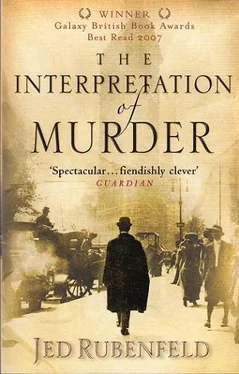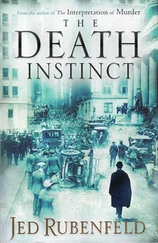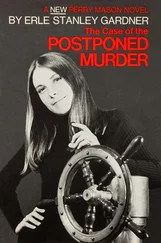Jed Rubenfeld - The Interpretation of Murder
Здесь есть возможность читать онлайн «Jed Rubenfeld - The Interpretation of Murder» весь текст электронной книги совершенно бесплатно (целиком полную версию без сокращений). В некоторых случаях можно слушать аудио, скачать через торрент в формате fb2 и присутствует краткое содержание. Жанр: Исторические приключения, на английском языке. Описание произведения, (предисловие) а так же отзывы посетителей доступны на портале библиотеки ЛибКат.
- Название:The Interpretation of Murder
- Автор:
- Жанр:
- Год:неизвестен
- ISBN:нет данных
- Рейтинг книги:5 / 5. Голосов: 1
-
Избранное:Добавить в избранное
- Отзывы:
-
Ваша оценка:
- 100
- 1
- 2
- 3
- 4
- 5
The Interpretation of Murder: краткое содержание, описание и аннотация
Предлагаем к чтению аннотацию, описание, краткое содержание или предисловие (зависит от того, что написал сам автор книги «The Interpretation of Murder»). Если вы не нашли необходимую информацию о книге — напишите в комментариях, мы постараемся отыскать её.
The Interpretation of Murder — читать онлайн бесплатно полную книгу (весь текст) целиком
Ниже представлен текст книги, разбитый по страницам. Система сохранения места последней прочитанной страницы, позволяет с удобством читать онлайн бесплатно книгу «The Interpretation of Murder», без необходимости каждый раз заново искать на чём Вы остановились. Поставьте закладку, и сможете в любой момент перейти на страницу, на которой закончили чтение.
Интервал:
Закладка:
A moment ago, I had inwardly chastised Ferenczi for expressing revulsion at a 'deviant' sexual act — a revulsion I, for some reason, did not exactly share, despite Freud's remark about what all decent people feel. I had just been telling myself that every lesson taught by psychoanalysis undercut society's disapproval of so-called sexual deviance. Now, however, I found myself awash in a similar feeling. The wish Freud imputed to Miss Acton revolted me. Disgust is so reassuring; it feels like a moral proof. It is hard to let go of any moral sentiment anchored by disgust. We can't do it without setting our entire sense of right and wrong a-tremble, as if we were losing a plank that supported the whole fabric.
'At the same time,' Freud continued, 'Nora formed a plan to seduce Mr Banwell, in order to avenge herself on her father. That is why, only a few weeks later, Nora agreed to join Banwell alone on a rooftop to watch the fireworks. That is why she also walked with him alone by the shore of a romantic lake two years later. Probably she encouraged him with hints of interest all along, as any pretty young girl can easily do. How surprised he must have been when she rejected him — not once, but twice.'
'Which she did because true object of desire was her father,' Ferenczi put in. 'But still, why does she attack Younger?'
'Yes, why, Younger?' asked Freud.
'Because I stand in for her father?'
'Precisely. When you analyze her, you take his place. It is the predictable transferential reaction. As a result, Nora's unconscious desire is now to gratify Younger with her mouth and throat. This fantasy was preoccupying her when Younger approached her to touch her forehead. He told us, you will remember, that at that moment she began to undo her scarf. This gesture represented her invitation to Younger to take advantage of her. Here, I may add, is also the explanation of why the touching of her throat succeeded, whereas the touching of her forehead did not. But Younger rejected this invitation, telling her to retie her scarf. She felt rebuffed.'
'She did look offended,' I put in. 'I didn't know why.'
'Don't forget,' Freud continued, 'she is naturally vain about the injuries she has received. Otherwise she would not wear the scarf at all. So she was already sensitive about how you would react if you saw her neck or back. When you told her to keep her scarf on, you injured her. And when, shortly afterward, you brought up the subject of Clara Banwell's back, it was as if you had said to her, "It is Clara in whom I am interested, not you. It is Clara's back I want to see, not yours." Thus you unwittingly recapitulated her father's act of betrayal, provoking in the girl her sudden, otherwise inexplicable fury. Hence her violent attack — followed by a desire to give you her throat and mouth.'
'Irrefutable,' said Ferenczi, shaking his head in admiration.
Entering the drawing room of their house on Gramercy Park, Nora Acton informed her mother she would not sleep in her bedroom that night. Instead she would stay in the small first-floor parlor. From there, she could see the patrolman stationed outside. Otherwise, she said, she would not feel safe.
These were the first words Nora had addressed to either of her parents since leaving the hotel. When they arrived home, she had gone straight to her room. Dr Higginson had been called in, but Nora refused to see him. She also refused to come to dinner, declaring that she was not hungry. This was false; in fact she had not eaten since morning, when Mrs Biggs had prepared breakfast for her.
Mildred Acton, reclining on the drawing-room sofa and pronouncing herself exhausted, told her daughter she was being most unreasonable. With one police officer manning the front door and another the rear, how could there be any danger? In any event, Nora's spending the night in the parlor was out of the question. The neighbors would see her. What would they think? The family must do its best now to act as if there had been no disgrace.
'Mother,' said Nora, 'how can you say I've been disgraced?'
'Why, I said no such thing. Harcourt, did I say any such thing?'
'No, dear,' said Harcourt Acton, standing over a coffee table. He had been perusing five weeks of accumulated mail. 'Of course not.'
'I specifically said we must act as if you hadn't been disgraced,' her mother clarified.
'But I haven't,' said the girl.
'Don't be obtuse, Nora,' counseled her mother.
Nora sighed. 'What is that on your eye, Father?'
'Oh — polo accident,' explained Acton. 'Poked myself with my own stick. Stupid of me. You remember my old detached retina? Same eye. Can't see a deuced thing out of it now. How's that for bad luck?'
No one answered this question.
'Well,' said Acton, 'not compared with yours, Nora, of course, I didn't mean — '
'Don't sit there!' Mrs Acton called out to her husband, who was about to lower himself into an armchair. 'No, not there either. I had the chairs done just before we left.'
'But where am I to sit, dear?' asked Acton.
Nora closed her eyes. She turned to leave.
'Nora,' said her mother. 'What was the name of that college of yours?'
The girl stopped, her every muscle tense. 'Barnard,' she answered.
'Harcourt, we must contact them first thing tomorrow morning.'
'Why must you contact them?' asked Nora.
'To tell them you aren't coming, of course. It's quite impossible now. Dr Higginson says you must rest. I never approved in the first place. A college for young ladies! We never heard of such a thing in my time.'
Nora flushed. 'You can't.'
'I beg your pardon,' said Mrs Acton.
'I am going to be educated.'
'Did you hear that? She calls me uneducated,' Mrs Acton said to her husband. 'Not those glasses, Harcourt, use the ones on top.'
'Father?' asked Nora.
'Well, Nora,' said Acton, 'we must consider what is best for you.'
Nora looked at her parents with undisguised fury. She ran from the room and up the stairs, not stopping on the second floor, where her own bedroom was, or the third, but continuing all the way to the fourth, with its low ceilings and small quarters. There she ran straight into Mrs Biggs's bedroom and threw herself on the old woman's bed, burying her head in the rough pillowcase. If her father did not let her go to Barnard, she told Mrs Biggs, she would run away.
Mrs Biggs did her best to comfort the girl. A good night's sleep, she said, would do a power. It was almost midnight when, at last, Nora consented to go to bed. To be sure she felt safe, Mrs Biggs saw to it that Mr Biggs was positioned on a chair outside Nora's bedroom door, with instructions to remain there the whole night through.
The old servant never once deserted his post that night, although he nodded off before too long. The police officers likewise remained on duty. Which made it quite surprising when, in the black of night, the girl suddenly felt a man's handkerchief pressing hard against her mouth and the cold, sharp edge of a blade on her neck.
Never having been to Jelliffe's home, I was unprepared for its extravagance. The word apartment was inapposite, unless one had in mind the phrase royal apartments, as for example at Versailles, which was evidently the dwelling Jelliffe intended to bring to mind. Blue Chinese porcelain, white marble statues, and exquisitely turned legs — highboy legs, davenport legs, credenza legs — were everywhere on display. If Jelliffe meant to convey to his guests an impression of personal wealth, he succeeded.
I knew Freud well enough by now to see he was repelled; the Bostonian in me had the same reaction. Ferenczi, by contrast, was unaffectedly overwhelmed by the splendor. I overheard him exchanging pleasantries with two elderly female guests in Jelliffe's living room before dinner, where servants offered us hors d'oeuvres from gold, not silver, trays. In his white suit, Ferenczi was the only man present not wearing black. It did not seem to discomfit him in the least.
Читать дальшеИнтервал:
Закладка:
Похожие книги на «The Interpretation of Murder»
Представляем Вашему вниманию похожие книги на «The Interpretation of Murder» списком для выбора. Мы отобрали схожую по названию и смыслу литературу в надежде предоставить читателям больше вариантов отыскать новые, интересные, ещё непрочитанные произведения.
Обсуждение, отзывы о книге «The Interpretation of Murder» и просто собственные мнения читателей. Оставьте ваши комментарии, напишите, что Вы думаете о произведении, его смысле или главных героях. Укажите что конкретно понравилось, а что нет, и почему Вы так считаете.












